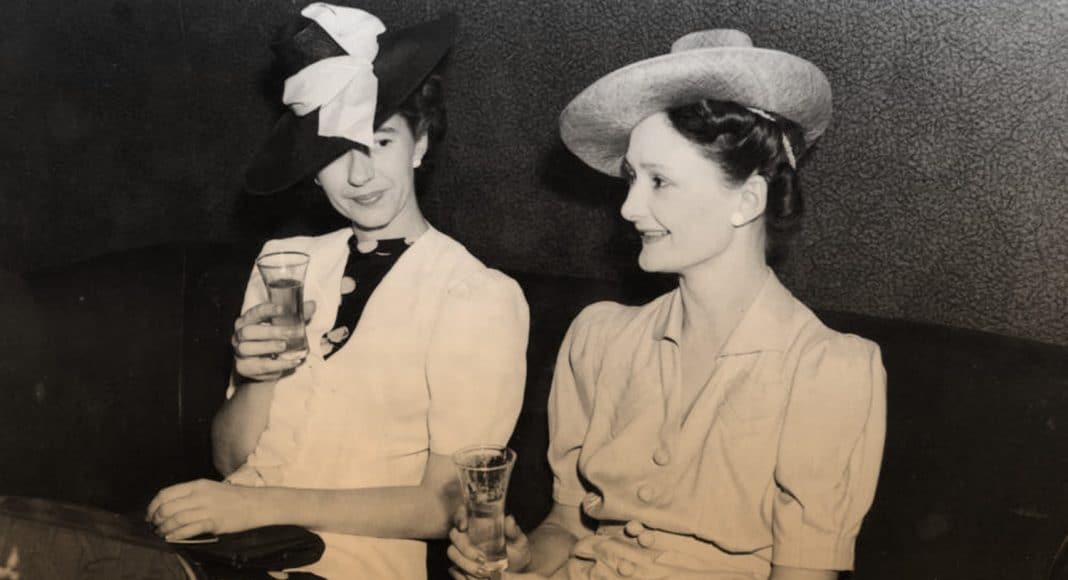Before the Industrial Revolution, women ruled the beer industry. The act of brewing, primarily associated with the kitchen, was necessary for the nuclear family. Beer provided much needed sustenance (the concoction provides lots of calories) and clean water (the boiling hot water needed to make beer purified otherwise diseased English drinking water – remember this is the country that brought us the plague). And it mellowed tensions from hard, pre-internet living.
With the women’s expertise, beer soon moved from the family kitchens to the community at large. Surplus beer was shared with townspeople in the squares and at parties and community gatherings. Soon, though, women began opening alehouses and making ends meet off their suds. But this paved the way for big business and soon, men realized the financial power of beer and pushed women out of the industry. Until recently.
https://www.instagram.com/p/BFhnmHslsWl/
Over the past couple of decades, women have been pushing back into the industry, opening breweries and bars with spouses or on their own. Mari Kemper, co-owner of Chuckanut Brewing in Bellingham, WA, says many women do everything for the brewery — from selling the beer to customers to handling finances in the offices — except the actual brewing.
https://www.instagram.com/p/BKGd8uBDc92/
Others, like Seattle’s Stoup Brewing co-owner, Robyn Schumacher, do it all. She’s an owner, brewer, taproom manager and, since passing the test in 2012, a certified cicerone — the first-ever female cicerone in Washington state.
My main thing is that I want women to understand we’ve been forgotten. There’s really no difference in our enjoyment of beer.
Schumacher’s sentiment also underlies the work of Teri Fahrendorf, founder of the Pink Boots Society, which came about in 2007 when Fahrendorf realized there was a small but growing network of women in the beer industry that needed to be connected.
https://www.instagram.com/p/BNVzTn8gLgG/
The mission of the Pink Boots Society, which has chapters all over the world, is to “empower women beer professionals,” says Fahrendorf, a longtime brewer who quit her job in the mid-2000’s to drive across country to visit breweries and meet women professionals.
“I kept hearing, ‘I thought I was the only one!’” she says.
Later, Fahrendorf brought 16 women brewers together in a single room (with no men) and came up with the society’s mission. “We didn’t know what it would feel like. Men wanted to come, but I said no.”
https://www.instagram.com/p/BCs7HloOOUU/
Today, the Pink Boots Society serves people all over the world, aiming to educate women interested in brewing (for example: Is it safe for a pregnant woman to brew with certain chemicals?), and it also provides scholarships and apprenticeships for hopeful and established women brewers. In the Society’s nine years, the membership has grown from 60 to about 2,000.
“Over my career I’d seen a few women come in [to the industry] and quit,” Fahrendorf sighs. “If those women had the support, maybe they would have stayed in it, too.”
And thanks to her work, more and more women are entering the industry, women like Seattle’s Lindsey Scully, a former beertender at Stoup Brewing and a current employee for the Emerald City startup beer brewing company, PicoBrew. Scully, inspired by both Fahrendorf and Schumacher, recently studied and passed the Certified Cicerone program, becoming an official beer expert.
Brewing is still considered a gentleman’s industry. Being a lady trying to break in, I wanted to have that extra hand up.
And it worked. Scully is one of a growing number of women returning to a profession that was once dominated by them. It’s a happy occurrence, notes Fahrendorf, who continues her work with the Pink Boots Society, hoping to egg on yet another generation of women brewers and beer professionals.
Related Stories
[soliloquy id=”19711″]


